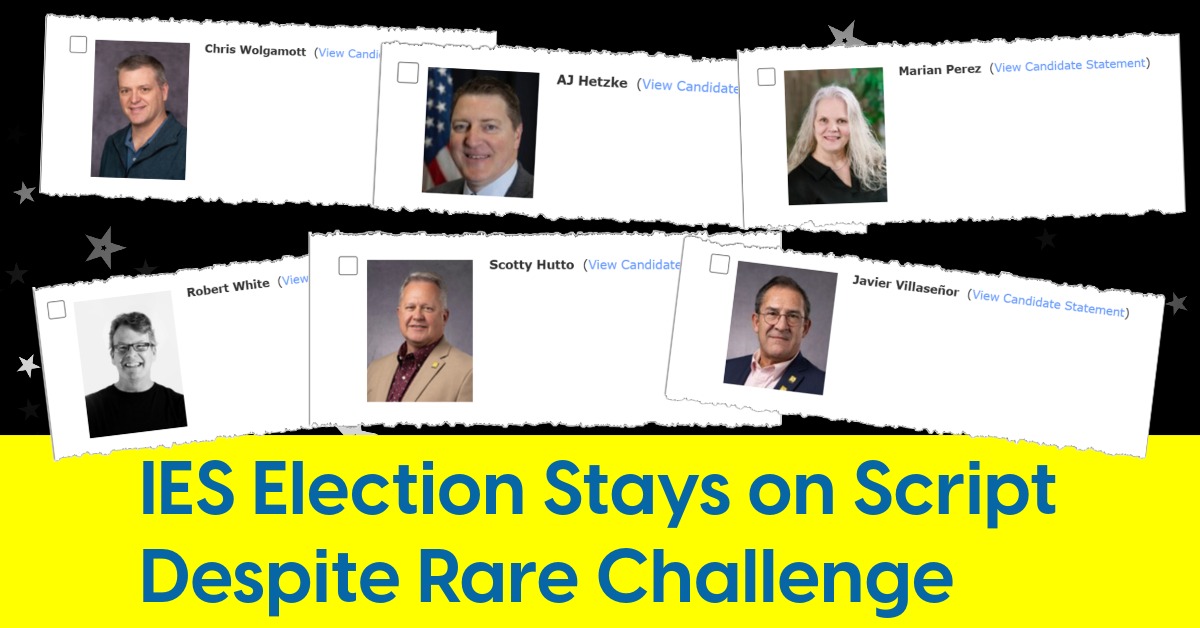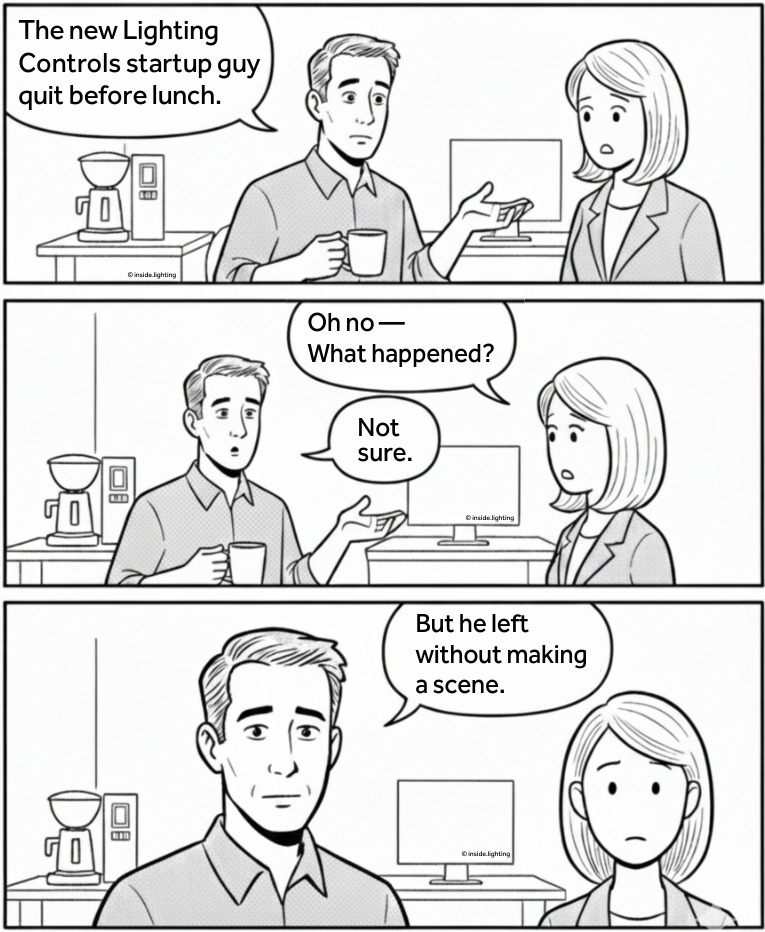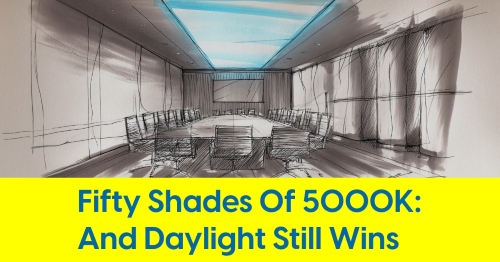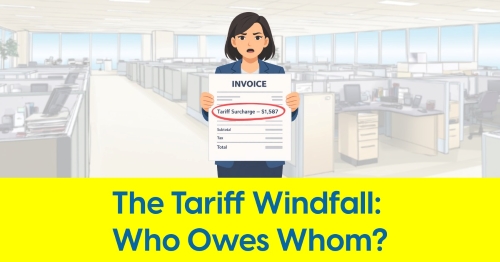October 29, 2025
IES Election Stays on Script Despite Rare Challenge

A write-in effort added intrigue, but voters ultimately stayed the course
For longtime members of the Illuminating Engineering Society, the annual election typically arrives with the suspense of a rerun. This year, the script was altered — but only slightly. In the Society’s most unconventional contest in recent memory, Ira Rothman’s write-in challenge for Vice President ultimately fell short. The full ballot, composed entirely of nominees selected by the IES Nominating Committee, sailed to victory. So did a package of governance-related bylaw amendments.
But even as the vote reaffirmed the established line of succession — naming Scotty Hutto as 2026 Vice President and presumptive 2027 President — it also delivered something IES elections rarely do: real choice.
The Write-In Campaign That Sparked Conversation
Rothman, a four-decade IES member with a long résumé of industry and IES volunteer roles, launched an email-driven campaign to challenge Hutto’s candidacy. His message was pointed, arguing that the Society’s current nominee lacked the breadth of experience needed to steer the organization through complex times.
He didn’t win, but his campaign resonated with some corners of the membership. In a statement to Inside Lighting following the results, Rothman wrote:
“Although I am disappointed in the results regarding my write-in campaign for the IES Vice-President/President Elect position, knowing it was a long-shot, I am truly grateful and thank those who supported my effort.” He added, “I congratulate Scotty on his appointment, wish him well, and hope that his work in 2026, working alongside Jared Smith, our incoming President, will prove valuable as he prepares for his own presidency in 2027.”
Ira, Iris and Irwin: Names & Numbers
Still, exactly how many ballots bore Ira Rothman’s name — or some creative variant of it — remains unclear. The IES confirmed to Inside Lighting that it will not release vote counts or percentages. The Society affirmed that it had never disclosed this information in the past and will not do so this year either.
Complicating matters: at least one member reportedly submitted a vote for “Irwin Ruffleman.” That vote was not included in Rothman’s tally. A vote for “Iris Rothman,” however, was counted. If the race had come down to a razor-thin margin, the third-party vendor, Balloteer, could have been asked to investigate intent with the voting member — but that wasn’t necessary this time.
Who Won, and What Passed
With Rothman out of contention, the formal slate moves ahead. Hutto — SESCO Lighting’s Atlanta-based Business Development Manager — will assume the VP role in 2026. Barring any additional surprises, he’ll become Society President in 2027. Hutto’s long involvement with the Street and Area Lighting Committee and his business leadership credentials formed the basis of his candidacy.
Other Board election winners include:
- At-Large Directors: Javier Villaseñor (Mexico City), Robert White (Detroit), and Chris Wolgamott (Portland).
- Regional Directors: AJ Hetzke (Northeast, Rochester NY) and Marian Perez (Midwest, Cleveland OH).
Also approved were several bylaw changes intended to modernize the Society’s governance:
- The Associate Member category was eliminated, while two new types were created: Distinguished Members (award recipients, dues-exempt) and Allied Organization Members (non-lighting professionals).
- Emeritus status now requires members to be at least 62 years old.
- Full Member status requirements were lowered, with LC holders now qualifying after 5 years of engagement.
- Emerging Professionals will now automatically transition to full membership after five continuous years.
- Honorary Members will lose voting and office-holding privileges.
- Allied Members will be limited to technical committee roles, excluded from broader leadership.
A Quiet Shakeup
The Nominating Committee’s vetted candidates remain undefeated, but this year, the election actually felt like one.
For decades, elections have reflected the work of a closed-door committee, not a campaign trail. That predictability has ensured stability — and also drawn criticism. Rothman’s candidacy may not have reversed the outcome, but it did prompt unusual public scrutiny. For some, it stirred deeper questions about transparency, inclusivity, and whether members should expect more choices — or at least more information — on their ballots.
No one is promising upheaval, least of all Rothman. Yet for the first time in recent history, the IES had a contested seat. And with it, a glimpse of something elections are meant to do: engage.










